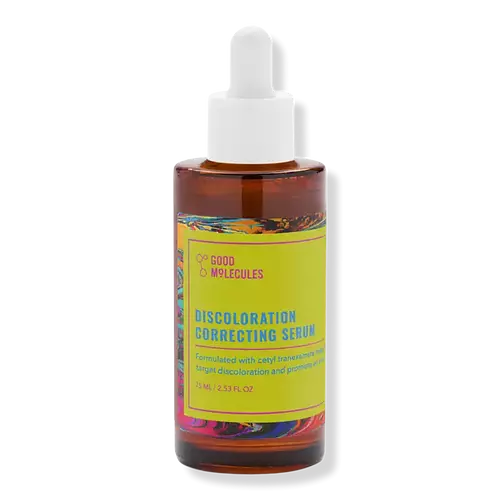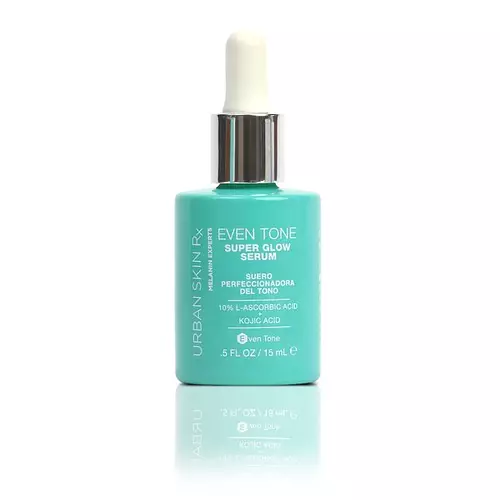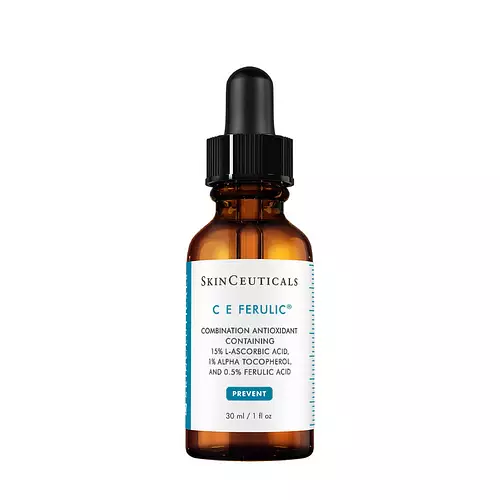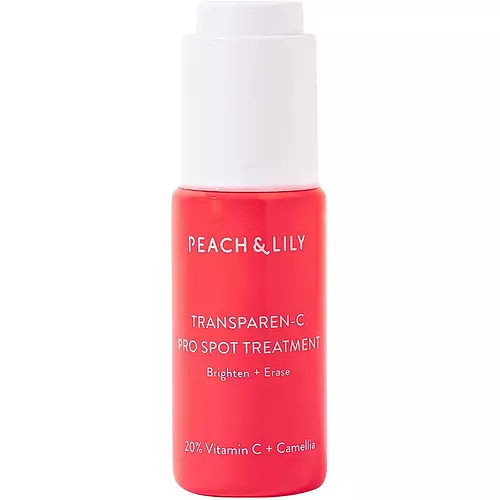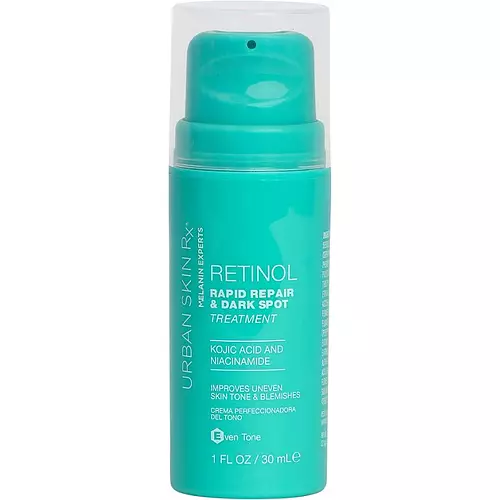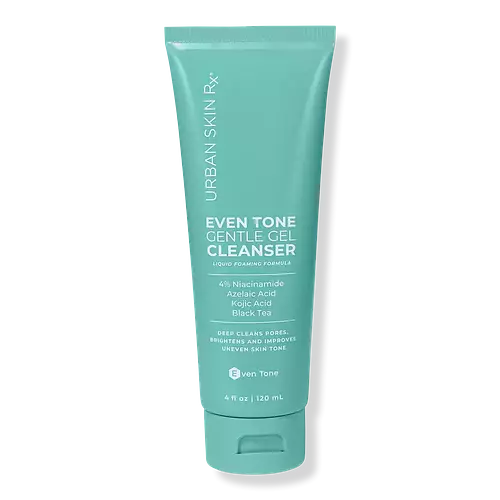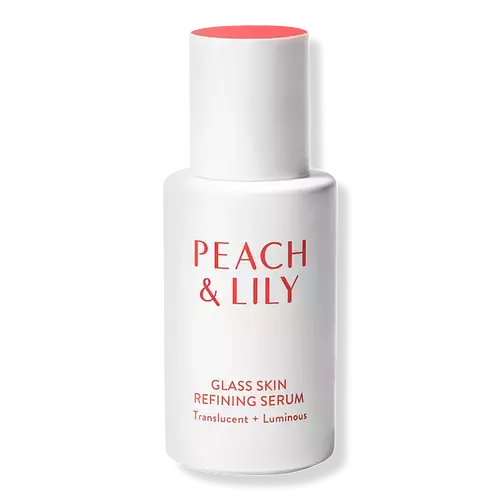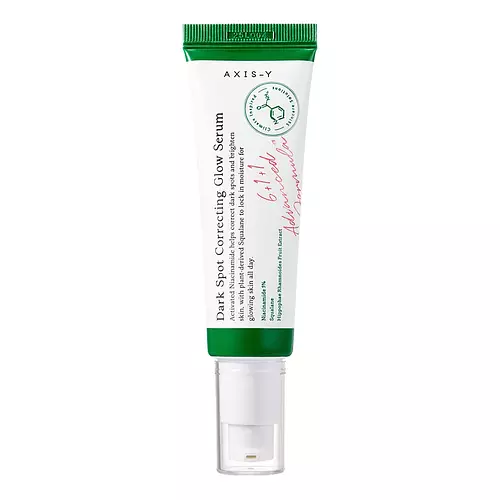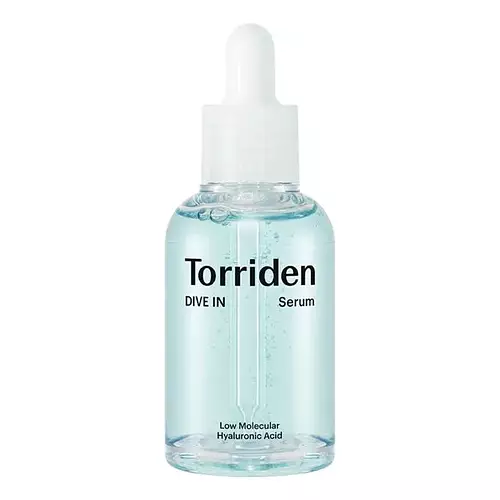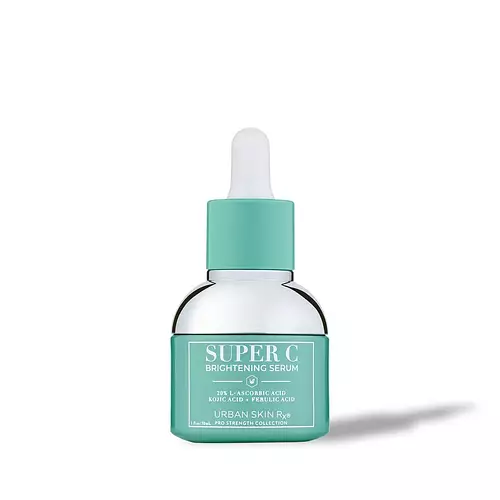
Urban Skin Super C Brightening Serum Ingredients Explained
Published on July 13, 2020
Overview
What it is
Serum with 34 ingredients that contains BHA, hyaluronic acid, niacinamide, Vitamin C and Vitamin E
Cool Features
It is vegan, cruelty-free, fungal acne (malassezia) safe, and reef safe
Suited For
It has ingredients that are good for fighting acne, anti aging, dry skin, brightening skin, sensitive skin, oily skin, reducing pores, scar healing, dark spots and better texture
Free From
It doesn't contain any harsh alcohols, common allergens, fragrances, parabens, silicones or sulfates
Fun facts
Urban Skin is from United States. This product is used in 6 routines created by our community.
We independently verify ingredients and our claims are backed by peer-reviewed research. Does this product need an update? Let us know.
Serum with 34 ingredients that contains BHA, hyaluronic acid, niacinamide, Vitamin C and Vitamin E
Quick info
You should know
Notable Ingredients
This product contains 1 ingredient that may have this attribute:
This product contains 1 ingredient that may have this attribute:
This product contains 1 ingredient that may have this attribute:
This product contains 1 ingredient that may have this attribute:
This product contains 1 ingredient that may have this attribute:
Benefits
This product contains 2 ingredients that may have this attribute:
This product contains 1 ingredient that may have this attribute:
This product contains 3 ingredients that may have this attribute:
This product contains 2 ingredients that may have this attribute:
This product contains 1 ingredient that may have this attribute:
This product contains 2 ingredients that may have this attribute:
This product contains 4 ingredients that may have this attribute:
This product contains 2 ingredients that may have this attribute:
This product contains 5 ingredients that may have this attribute:
This product contains 3 ingredients that may have this attribute:
This product contains 5 ingredients that may have this attribute:
Concerns
This product contains 1 ingredient that may have this attribute:
This product contains 2 ingredients that may have this attribute:
This product contains 1 ingredient that may have this attribute:
This product contains 1 ingredient that may have this attribute:
Ingredients 34
Water. It's the most common cosmetic ingredient of all. You'll usually see it at the top of ingredient lists, meaning that it makes up the largest part of the product.
Ascorbic Acid is is pure Vitamin C. This form makes up the largest amount of vitamin C found naturally in our skin.
Butylene Glycol (or BG) is used within cosmetic products for a few different reasons:
Glycerin is already naturally found in your skin. It helps moisturize and protect your skin.
Phenoxyethanol is a preservative that has germicide, antimicrobial, and aromatic properties. Studies show that phenoxyethanol can prevent germ and microbial growth. By itself, it has a scent that is similar to that of a rose.
Citrus Aurantium Dulcis Peel Oil is oil from the peel of an orange fruit.
Ferulic Acid is a plant based antioxidant. Antioxidants help fight free-radicals. Free-radicals are molecules that may damage your skin cells. Ferulic Acid can help reduce the formation of fine lines and hyperpigmentation.
Salicylic Acid (also known as beta hydroxy acid or BHA) is one of the most well-known ingredients for treating skin that struggles with blackheads and acne. It helps to exfoliate both the skin's surface and pores, and also acts as an anti-inflammatory agent.
Triethanolamine is an emulsifier and pH adjuster. It is created using ethylene oxide and ammonia. This gives Triethanolamine a nitrogen core and a similar scent to ammonia.
Laureth-23 is created by reacting ethylene oxide with Lauryl Alcohol.
Camellia Sinensis Leaf Extract is derived from the leaves of the tea plant. Black tea, green tea, and oolong tea are all harvested from this plant.
Tocopherol (also known as Vitamin E) is a common antioxidant used to help protect the skin from free-radicals and strengthen the skin barrier. It's also fat soluble - this means our skin is great at absorbing it.
We don't have a description for Alchemilla Vulgaris Flower/Leaf/Stem Extract.
We don't have a description for Veronica Officinalis Flower/Leaf/Stem Extract.
Sodium Metabisulfite is an antioxidant and is a preservative.
Sodium Sulfite is a preservative. Preservatives help prevent mold and bacteria from growing in cosmetics.
Scutellaria Baicalensis Root Extract comes from the Baikal skullcap or Chinese skullcap plant. This plant is native to Northeast Asia and can be found in China, Mongolia, Korea, and Siberia.
Centella Asiatica Extract (Cica) is derived from an herb native to Southeast Asia. It is famous for its anti-inflammatory and soothing properties.
Disodium EDTA plays a role in making products more stable by aiding other preservatives.
Alpha-Arbutin is made from hydroquinone and glucose. It may be derived from the fermentation of soybeans.
Hydrolyzed Hyaluronic Acid is a form of hyaluronic acid. It is created by the hydrolysis of hyaluronic acid with a high molecular weight. Once created, Hydrolyzed Hyaluronic Acid has a low molecular weight.
Niacinamide has emerged as an all-star ingredient due to its many benefits.
Panthenol (also referred to as pro-vitamin B5) is a common ingredient that helps hydrate and soothe the skin.
Sodium PCA is the sodium salt of pyroglutamic acid and is naturally occurring on human skin.
Water, Ethoxydiglycol, Ascorbic Acid, Butylene Glycol, Glycerin, Phenoxyethanol, Citrus Aurantium Dulcis Peel Oil, Ferulic Acid, Salicylic Acid, Triethanolamine, Saxifraga Sarmentosa Extract, Vitis Vinifera Fruit Extract, Laureth-23, Camellia Sinensis Leaf Extract, Tocopherol, Alchemilla Vulgaris Flower/Leaf/Stem Extract, Malva Sylvestris Flower/Leaf/Stem Extract, Mentha Piperita Leaf Extract, Primula Veris Flower Extract, Veronica Officinalis Flower/Leaf/Stem Extract, Melissa Officinalis Leaf Extract, Sodium Metabisulfite, Sodium Sulfite, Morus Alba Root Extract, Scutellaria Baicalensis Root Extract, Centella Asiatica Extract, Disodium EDTA, Achillea Millefolium Flower Water, Alpha-Arbutin, Hydrolyzed Hyaluronic Acid, Niacinamide, Panthenol, Sodium PCA, Ethanolamine
Ingredient Ratings
Based on the number of likes and dislikes each ingredient has received.
Ingredients Explained
Water. It's the most common cosmetic ingredient of all. You'll usually see it at the top of ingredient lists, meaning that it makes up the largest part of the product.
So why is it so popular? Water most often acts as a solvent - this means that it helps dissolve other ingredients into the formulation.
You'll also recognize water as that liquid we all need to stay alive. Talk about multi-purpose! If you see this, drink a glass of water. Stay hydrated!
Learn more about WaterEthoxydiglycol is a synthetic solvent.
Solvents are used to keep ingredients together in a product. They can help dissolve ingredients to stable bases or help evenly distribute ingredients throughout the product.
Ethoxydiglycol also helps deliver other key ingredients into the skin.
Learn more about EthoxydiglycolAscorbic Acid is is pure Vitamin C. This form makes up the largest amount of vitamin C found naturally in our skin.
Not only is vitamin C great for your overall health and immune system, it also has plenty of benefits on your skin.
Vitamin C is best used for brightening skin. It improves dark spots, acne scars, and hyperpigmentation. This is because it blocks the process of skin darkening when exposed to UV.
Remember: Vitamin C should not replace sunscreen!
Your skin uses vitamin C to build collagen. Collagen is one key component in having a strong skin barrier and plump skin. Vitamin C also plays a role in regulating collagen, thus making it effective in improving wrinkles and fine lines.
Ascorbic acid shows potent antioxidant activity. As an antioxidant, it helps fight free-radicals. Free-radicals are molecules that may damage your skin cells. These antioxidants also protect skin against UV damage.
The best formulations include Vitamin E and/or ferulic acid. These two ingredients help stabilize and provide a boost in the benefits of ascorbic acid. This is because ascorbic acid becomes unstable when exposed to UV and air. In fact, you can tell your ascorbic acid has oxidized when it turns an orange-yellow color.
Ascorbic acid is generally compatible with other ingredients. However, using ascorbic acid with other active ingredients might cause irritation. Two ingredients: copper ions and benzoyl peroxide, will inactivate ascorbic acid completely.
Read more about other types of Vitamin C:
Foods rich with vitamin C include oranges, strawberries, broccoli, bell peppers, and more. When consuming Vitamin C, your skin receives a portion of the nutrients.
Learn more about Ascorbic AcidButylene Glycol (or BG) is used within cosmetic products for a few different reasons:
- It is a solvent, meaning that it helps to dissolve other ingredients. This also enhances the absorption of the product into one's skin.
- It is a humectant, which means that it helps attract moisture into the skin.
- It helps improve product application.
Overall, Butylene Glycol is a safe and well-rounded ingredient. It is unlikely to irritate skin, and works well with pretty much all other ingredients.
Glycerin is already naturally found in your skin. It helps moisturize and protect your skin.
A study from 2016 found glycerin to be more effective as a humectant than AHAs and hyaluronic acid.
As a humectant, it helps the skin stay hydrated by pulling moisture to your skin. The low molecular weight of glycerin allows it to pull moisture into the deeper layers of your skin.
Hydrated skin improves your skin barrier; Your skin barrier helps protect against irritants and bacteria.
Glycerin has also been found to have antimicrobial and antiviral properties. Due to these properties, glycerin is often used in wound and burn treatments.
In cosmetics, glycerin is usually derived from plants such as soybean or palm. However, it can also be sourced from animals, such as tallow or animal fat.
This ingredient is organic, colorless, odorless, and non-toxic.
Glycerin is the name for this ingredient in American English. British English uses Glycerol/Glycerine.
Learn more about GlycerinPhenoxyethanol is a preservative that has germicide, antimicrobial, and aromatic properties. Studies show that phenoxyethanol can prevent germ and microbial growth. By itself, it has a scent that is similar to that of a rose.
It's often used in formulations along with Caprylyl Glycol to preserve the shelf life of products.
Citrus Aurantium Dulcis Peel Oil is oil from the peel of an orange fruit.
Limonene and linalool make up the majority of oils from citrus peels. Limonene has a "citrus" fragrance. Citrus peels also contain flavonoids, which have anti-inflammatory properties.
Citrus peel is also a rich source of flavonoids. Flavonoids are natural antioxidants and help protect your skin against damage. Flavonoids are a group of compounds naturally found in vegetables and fruits.
The term 'fragrance' is not regulated in many countries. In many cases, it is up to the brand to define this term. For instance, many brands choose to label themselves as "fragrance-free" because they are not using synthetic fragrances. However, their products may still contain ingredients such as essential oils that are considered a fragrance.
Learn more about Citrus Aurantium Dulcis Peel OilFerulic Acid is a plant based antioxidant. Antioxidants help fight free-radicals. Free-radicals are molecules that may damage your skin cells. Ferulic Acid can help reduce the formation of fine lines and hyperpigmentation.
When used with Vitamin C, Ferulic Acid has shown to prevent Vitamin C from breaking down. In other words, it acts as a stabilizer.
Ferulic Acid is sometimes used to preserve food. Foods containing Ferulic Acid include: oats, rice, eggplant, citrus.
In medicine, Ferulic Acid is being studied for helping with diabetes, Alzheimer's, and cardiovascular diseases.
Learn more about Ferulic AcidSalicylic Acid (also known as beta hydroxy acid or BHA) is one of the most well-known ingredients for treating skin that struggles with blackheads and acne. It helps to exfoliate both the skin's surface and pores, and also acts as an anti-inflammatory agent.
This multitasking property makes it a great ingredient for cleaning out pores, controlling oil production, and reducing inflammation.
Unlike AHAs which are water soluble, Salicylic Acid is oil soluble. This means that it's able to exfoliate the inside of pores and reduce blackheads.
Concentrations of 0.5-2% are recognized by the U.S. FDA as an over-the-counter topical acne product.
It can cause irritation and/or dryness if one's skin already has a compromised moisture barrier, so it's best to focus on repairing that before introducing a Salicylic Acid into your routine.
In general, Salicylic Acid is a great ingredient for oily acne-prone skin.
While salicylic acid does not increase sun-sensitivity, we still recommend wearing SPF.
If you are looking for the ingredient called BHA or Butylated Hydroxyanisole, click here.
Learn more about Salicylic AcidTriethanolamine is an emulsifier and pH adjuster. It is created using ethylene oxide and ammonia. This gives Triethanolamine a nitrogen core and a similar scent to ammonia.
As an emulsifier, it prevents ingredients from separating and enhances texture by adding volume to a product.
PH adjusters are common in cosmetic products. The pH of a product can affect the effectiveness of other ingredients. A product with a high pH may also irritate the skin.
Learn more about TriethanolamineWe don't have a description for Saxifraga Sarmentosa Extract.
Vitis Vinifera Fruit Extract comes from grapes.
Grape extract has many skin benefits. It also contains many potent antioxidants such as Vitamin E , Vitamin C, proanthocyanidins, polyphenols, flavonoids, and anthocyanins. Proanthocyanidin has been shown to help even out skin tone.
Antioxidants help fight free-radical molecules. Free-radical molecules are capable of damaging our cells and other genetic material. Antioxidants help stabilize free-radicals by donating extra electrons. Grape seed extract may help reduce the signs of aging.
Grape extract also helps soothe and hydrate your skin.
Learn more about Vitis Vinifera Fruit ExtractLaureth-23 is created by reacting ethylene oxide with Lauryl Alcohol.
It is a cleansing ingredient. This means it helps lift oils and dirt so they may be rinsed away with water.
The 23 refers to the number of repeating ethylene oxides in the molecule.
Learn more about Laureth-23Camellia Sinensis Leaf Extract is derived from the leaves of the tea plant. Black tea, green tea, and oolong tea are all harvested from this plant.
This ingredient has many skin benefits:
This ingredient contains polyphenols, a strong antioxidant. Antioxidants help fight off molecules that damage skin cells.
On top of that, the antioxidants in green tea neutralize free-radicals from the sun. This gives the skin some extra UV protection, but should not replace sunscreen.
Many components of tea have anti-inflammatory properties.
Polyphenols and L-theanine help soothe the skin and reduce irritation. The caffeine in Camellia Sinensis Leaf Extract helps calm inflamed blood vessels.
Other compounds found in tea include: Vitamin Bs, linoleic acid, magnesium, calcium, iron, and zinc.
Research has shown both drinking Camellia Sinensis Leaf Tea and applying it to the skin can help boost skin elasticity and hydration. Studies also show using tea extract may reduce sebum, or oil, production.
Learn more about Camellia Sinensis Leaf ExtractTocopherol (also known as Vitamin E) is a common antioxidant used to help protect the skin from free-radicals and strengthen the skin barrier. It's also fat soluble - this means our skin is great at absorbing it.
Vitamin E also helps keep your natural skin lipids healthy. Your lipid skin barrier naturally consists of lipids, ceramides, and fatty acids. Vitamin E offers extra protection for your skin’s lipid barrier, keeping your skin healthy and nourished.
Another benefit is a bit of UV protection. Vitamin E helps reduce the damage caused by UVB rays. (It should not replace your sunscreen). Combining it with Vitamin C can decrease sunburned cells and hyperpigmentation after UV exposure.
You might have noticed Vitamin E + C often paired together. This is because it is great at stabilizing Vitamin C. Using the two together helps increase the effectiveness of both ingredients.
There are often claims that Vitamin E can reduce/prevent scarring, but these claims haven't been confirmed by scientific research.
Learn more about TocopherolWe don't have a description for Alchemilla Vulgaris Flower/Leaf/Stem Extract.
We don't have a description for Malva Sylvestris Flower/Leaf/Stem Extract.
Mentha Piperita Leaf Extract is extract from peppermint leaves.
Studies show peppermint extract have antimicrobial properties against some bacteria and fungi.
In large percentages, peppermint extract may sensitize the skin.
Learn more about Mentha Piperita Leaf ExtractWe don't have a description for Primula Veris Flower Extract.
We don't have a description for Veronica Officinalis Flower/Leaf/Stem Extract.
We don't have a description for Melissa Officinalis Leaf Extract.
Sodium Metabisulfite is an antioxidant and is a preservative.
Sodium Sulfite is a preservative. Preservatives help prevent mold and bacteria from growing in cosmetics.
This ingredient has been shown to break the bonds in hair, acting as a natural straightener.
It is commonly used in food. It should be noted sodium sulfite degrades both vitamins B1 and E.
Fun fact: Sulfites are naturally occuring in wine.
Learn more about Sodium SulfiteWe don't have a description for Morus Alba Root Extract.
Scutellaria Baicalensis Root Extract comes from the Baikal skullcap or Chinese skullcap plant. This plant is native to Northeast Asia and can be found in China, Mongolia, Korea, and Siberia.
In cosmetics, Scutellaria Baicalensis Root Extract provides antioxidant and anti-inflammatory benefits. This is due to the flavonoid composition of Scutellaria Baicalensis Root Extract.
In Chinese traditional folk medicine, Scutellaria Baicalensis Root Extract is used to help treat lung and hypertension.
Learn more about Scutellaria Baicalensis Root ExtractCentella Asiatica Extract (Cica) is derived from an herb native to Southeast Asia. It is famous for its anti-inflammatory and soothing properties.
Cica is rich in antioxidants and amino acids, such as Madecassic Acid and Asiaticoside.
Studies show the compounds in cica help with:
The combination of all these properties makes cica effective at soothing, hydrating, and protecting the skin.
Other great components of Cica include Vitamin A, vitamin C, several B vitamins, and Asiatic Acid.
Fun fact: Cica has been used as a medicine and in food for many centuries. As a medicine, it is used to treat burns, scratches, and wounds.
Learn more about Centella Asiatica ExtractDisodium EDTA plays a role in making products more stable by aiding other preservatives.
It is a chelating agent, meaning it neutralizes metal ions that may be found in a product.
Disodium EDTA is a salt of edetic acid and is found to be safe in cosmetic ingredients.
Learn more about Disodium EDTAWe don't have a description for Achillea Millefolium Flower Water.
Alpha-Arbutin is made from hydroquinone and glucose. It may be derived from the fermentation of soybeans.
It is an antioxidant. Antioxidants help fight free-radicals, or molecules that may damage your skin cells.
Studies show this ingredient helps improve hyperpigmentation and fade discoloration.
Alpha-Arbutin may be used with other ingredients that help with hyperpigmentation. These ingredients include retinol, Vitamin C, niacinamide, and tranexamic acid.
Learn more about Alpha-ArbutinHydrolyzed Hyaluronic Acid is a form of hyaluronic acid. It is created by the hydrolysis of hyaluronic acid with a high molecular weight. Once created, Hydrolyzed Hyaluronic Acid has a low molecular weight.
Low molecular weight HA has been shown to hydrate and increase elasticity of the skin. Increasing elasticity is also associated with reduction of wrinkle depth.
One study found topical low molecular weight hyaluronic acid may be considered for the treatment of rosacea in the adult population. However, we always recommend speaking with a professional about your skin concerns.
Hyaluronic acids are a humectant. This means they draw moisture from the air. Hyaluronic acids help moisturize, soothe, and protect the skin.
Read more about other common forms of hyaluronic acid:
Learn more about Hydrolyzed Hyaluronic AcidNiacinamide has emerged as an all-star ingredient due to its many benefits.
It is known to treat acne by reducing inflammation. It also helps fade dark-spots and strengthen the skin by promoting the growth of the ceramide barrier.
Other benefits include smoothing wrinkles and minimizing redness.
The cherry on top? Niacinamide can also help build keratin, a protein that keeps skin firm.
When incorporating niacinamide into your routine, look out for concentration amounts. Typically, 5% niacinamide provides benefits such as fading dark spots. However, if you have sensitive skin, it is better to begin with a smaller concentration.
Niacinamide can be mixed with other ingredients to boost benefits. For instance, it has shown to be effective when used with copper, folic acid, and zinc to treat acne.
Learn more about NiacinamidePanthenol (also referred to as pro-vitamin B5) is a common ingredient that helps hydrate and soothe the skin.
lt is a humectant, meaning that it helps the skin attract and retain moisture.
Another benefit is the anti-inflammatory abilities. This means that it's great for sensitive, irritation-prone skin.
Once oxidized, panthenol converts to pantothenic acid. Panthothenic acid is found in all living cells.
Learn more about PanthenolSodium PCA is the sodium salt of pyroglutamic acid and is naturally occurring on human skin.
The PCA stands for pyrrolidone carboxylic acid, a natural amino acid derivative.
Sodium PCA is a has conditioning, anti-inflammatory, and humectant properties. Humectants help hydrate your skin by drawing moisture from the air. This helps keep your skin moisturized.
Learn more about Sodium PCAWe don't have a description for Ethanolamine.
When to use
How this product is used by our community
Directions
#1 After cleansing or toning apply 6-10 drops.
#2 Smooth over face and neck, avoiding eye area.
#3 Apply before other moisturizers and thicker serums.
#4 Can be used once or twice daily....
#1 After cleansing or toning apply 6-10 drops.
#2 Smooth over face and neck, avoiding eye area.
#3 Apply before other moisturizers and thicker serums.
#4 Can be used once or twice daily. Use in the morning for optimal results!
Compared With
Here are some products that it's often compared with
More Urban Skin Products
See all Urban Skin productsMore Serums
See all serumsWe're dedicated to providing you with the most up-to-date and science-backed ingredient info out there.
The data we've presented on this page has been verified by a member of the SkinSort Team.
Read more about us

